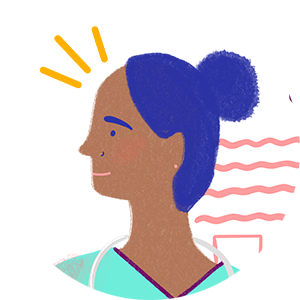Access, Exchange and Use of Social Determinants of Health (SDOH) Data in Clinical Notes


Access, Exchange and Use of Social Determinants of Health (SDOH) Data in Clinical Notes
The Centers for Disease Control and Prevention (CDC) define the social determinants of health (SDOH) as “the conditions in the places where people live, work, and play that affect a wide range of health and quality-of-life risks and outcomes.” Accurately and consistently collecting and tracking SDOH information about communities of people (including patients) is important for ensuring equitable access to quality healthcare and health education, maintaining economic stability, and planning for the built environment in our communities—such as the location of schools, parks, hospitals and other crucial amenities.
Unfortunately, SDOH data in the U.S. have not been tracked in consistent ways across all settings.
The U.S. Department of Health and Human Services wants to fix this disconnect in SDOH data collection by creating consistent measures and metrics, and then tracking these data through the United States Core Data for Interoperability (USCDI)—a standardized set of health data classes and constituent data elements for nationwide, interoperable health information exchange.
There is growing recognition that capturing and accessing SDOH data during the course of a health care visit may help clinicians address non-clinical factors more readily. These include insecurities over food, housing, and transportation. Each can profoundly affect the health of individuals.
In this project, Access, Exchange, and Use of SDOH Data in Clinical Notes, OpenNotes is exploring data that reflect the SDOH conditions in which people live, learn, work, and play, and mapping how these elements could be included in a future update to the USCDI.
Supported by the Office of the National Coordinator for Health IT (ONC), OpenNotes will conduct focus groups with patients and healthcare providers to better understand:
HHS awards contract for Access, Exchange, and Use of Social Determinants of Health Data in Clinical Notes FedHealthIT.com
Cait DesRoches, DrPH, Executive Director, OpenNotes, Associate Professor of Medicine, Harvard Medical School, Beth Israel Deaconess Medical Center
Deborah Wachenheim, MPP, Assistant Director, Dissemination, OpenNotes, Beth Israel Deaconess Medical Center
Kendall Harcourt, MSW
Anna Garcia, MD
Ria Shah, MS
Anshu Abhat, MD, MPH, Assistant Professor of Medicine, Internist, Harbor UCLA Medical Center, Director of Care Transitions and Patient Engagement, Population Health, LA County Health Services
Pedro Carneiro, MPH, Clinical Data Scientist, National Association of Community Health Centers
Grace Cordovano, PhD, Board-Certified Patient Advocate
Leonor Fernandez, MD, Assistant Professor of Medicine, Harvard Medical School, Internist, Beth Israel Deaconess Medical Center
Hadiya Green Guerrero, DPT, Senior Practice Specialist, American Physical Therapy Association
Erin Mackay, MPH, Managing Director for Health Justice, Consumer Advocate, National Partnership for Women and Families
Steve O’Neill, JD, LICSW, Faculty in the Center for Bioethics, Harvard Medical School, Mental Health Liaison, OpenNotes, Beth Israel Deaconess Medical Center
Michelle Proser, Director of Research, National Association of Community Health Centers, National Project Director for PRAPARE
Urmimala Sarkar, MD, MPH, Professor of Medicine, UCSF, Director of the UCSF Center for Vulnerable Populations, Internist, Zuckerberg San Francisco General Hospital
Mark Savage, JD, Director of Health Policy, Center for Digital Innovation at UCSF, SDOH Project Director for the Gravity Project
David White, Patient Advocate, Community Outreach Specialist, Dreyfus Health Policy and Research Center
Office of the National Coordinator for Health Information Technology
MedPanel, Inc.
 Under the U.S. Department of Health and Human Services, the Office of the National Coordinator for Health Information Technology (ONC) promotes a national health information technology (HIT) infrastructure and oversees its development. For healthcare providers, ONC is associated with nationwide efforts to provide electronic health records (EHR) to patients as a way to better curb medical errors and eliminate paper records.
Under the U.S. Department of Health and Human Services, the Office of the National Coordinator for Health Information Technology (ONC) promotes a national health information technology (HIT) infrastructure and oversees its development. For healthcare providers, ONC is associated with nationwide efforts to provide electronic health records (EHR) to patients as a way to better curb medical errors and eliminate paper records.
![]() Except where otherwise noted, the content by OpenNotes is licensed under a Creative Commons Attribution 4.0 International License.
Except where otherwise noted, the content by OpenNotes is licensed under a Creative Commons Attribution 4.0 International License.
NEW WEBINAR
Getting It Write: What To Do Now That Patients in England Can Read Their GP Notes
Tuesday, November 1, 2022 | 8am Pacific Standard Time (PST)
11am Eastern Standard Time (EST) / 3pm Greenwich Mean Time (GMT)
While open notes have been the “law of the land” in the United States for more than a year, in England, adult patients accessing care through the National Health Service (NHS) will have access to their primary care record online for the first time starting Nov. 1, 2022.
In this webinar, we’ll be joined by open notes experts and discuss what this change means for patients and general practitioner (GP) staff in England.


